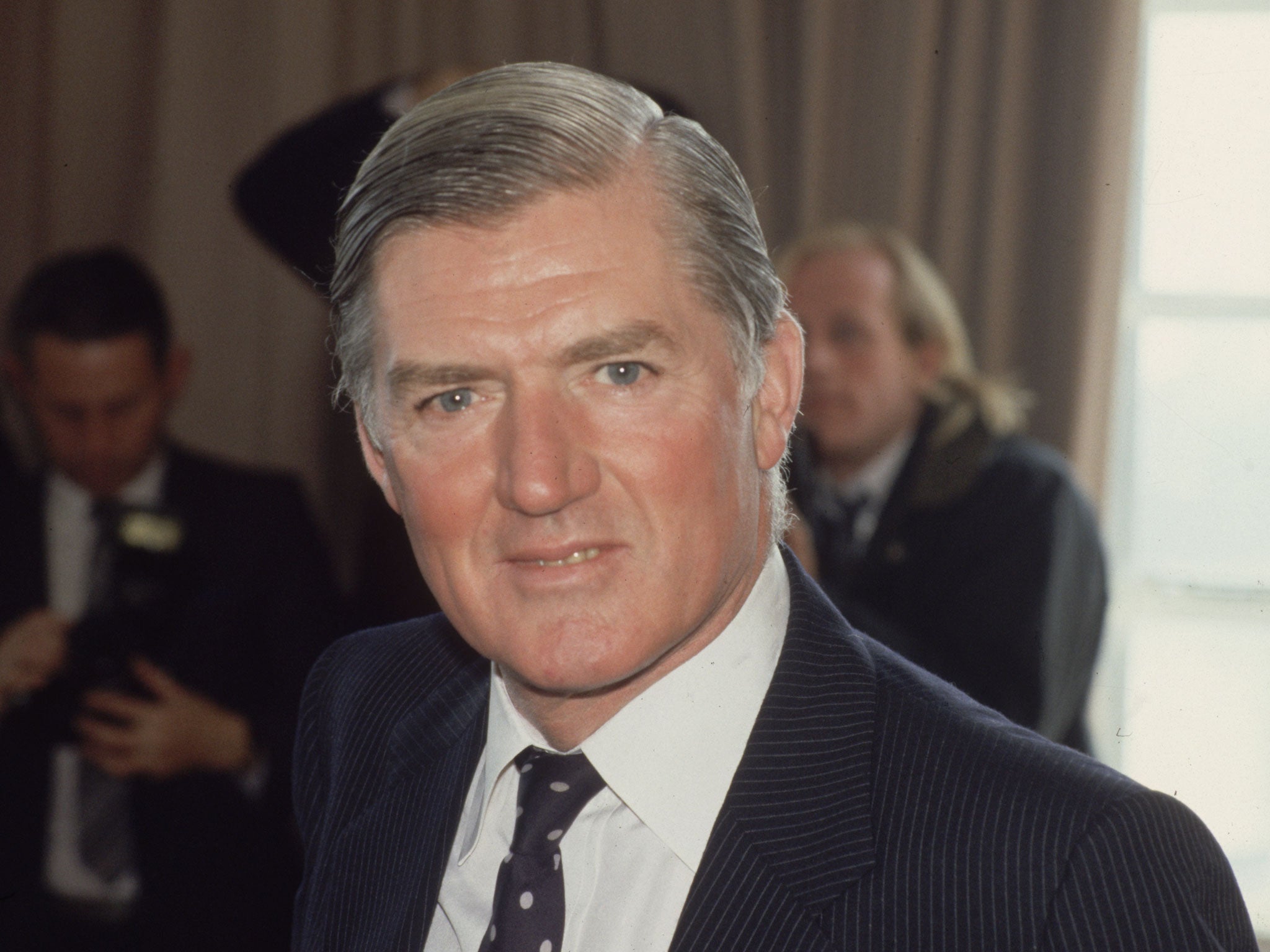Cecil Parkinson dead: Former Tory minister's secretary claimed he 'begged' her to have abortion
Lord Parkinson's status as Thatcher's natural successor was ended by the revelation of his affair with Sara Keays

Cecil Parkinson, whose status as Margaret Thatcher’s natural successor was ended by the revelation of his 12-year affair with his former Commons secretary, has died of cancer at the age of 84.
After he helped Baroness Thatcher secure a landslide victory at the 1983 general election as Conservative Party chairman, she intended to promote him to the post of Foreign Secretary –a move which would have put him in a strong position to succeed her.
But she had to delay her Cabinet reshuffle after Lord Parkinson told her on election day that his former secretary Sara Keays had become pregnant by him. To play safe, she instead made him Trade and Industry Secretary. Four months later, he was forced to resign during a dramatic Tory conference in Blackpool overshadowed by his affair becoming public. Miss Keays issued a statement "to put the record straight" on Lord Parkinson's promises to marry her. He had a brief meeting with Lady Thatcher in her Blackpool hotel suite at 2.15am and resigned at 8am.
Later Miss Keays claimed in her book that Lord Parkinson had "begged" her to have an abortion and had "haggled over every pound" of support. He insisted he had voluntarily made more than adequate provision for Miss Keays and their daughter Flora, who was diagnosed with learning disabilities and Asperger’s syndrome, and had an operation to remove a brain tumour aged four.
Lord Parkinson obtained a rare court injunction banning anyone from speaking publicly about Flora or revealing her identity. It expired when she was 18, when she said she had missed knowing her father, adding: "If he loved me, he would want to see me and be in my everyday life. I think my father has behaved very badly towards me."
Lord Parkinson, who remained with his wife Ann, with whom he had three daughters, had to wait four years for a return to the Cabinet as Energy Secretary. He was very proud of his landmark decision to privatise the electricity industry. But his “time out” meant he was no longer seen as a future Tory leader. John Major, rather than him, was made Chancellor, and succeeded Lady Thatcher in 1990.
Lord Parkinson left the Commons in 1992 and was made a life peer. He enjoyed a brief, unexpected return to the limelight in 1997 when at the age of 65 he served a second spell as Tory chairman, helping to steady the ship after Tony Blair's landslide victory. He retired from the Lords last September because of his illness. His family said in a statement yesterday (Mon): “Cecil passed away on January 22 after a long battle with cancer.”
The son of a railwayman who later became Transport Secretary, Lord Parkinson was a chartered accountant, businessman and self-made millionaire before entering politics as MP for Enfield West in 1970. His grammar school background, Cambridge athletics blue and good looks made him attractive to Lady Thatcher. To her, he was “one of us,” a true believer when many in her party doubted the need for her harsh economic medicine. She made him a member of her “War Cabinet” after the Argentina invaded the Falkland Islands in 1982.
Sir Malcolm Rifkind, the former Foreign Secretary, said: “At a personal level he was able to charm her. He was a very good-looking, very handsome man. She was attracted by men who were both good-looking but also had strong principles and strong views.”
He said Lord Parkinson would have been “the most natural candidate” to succeed Lady Thatcher if he had not had to resign in 1983. "John Major eventually filled the gap that Cecil Parkinson would have had," Sir Malcolm said. "But Cecil Parkinson was in reality a Thatcherite while John Major, as Margaret Thatcher eventually discovered, was not nearly as close to her, as she had hoped and assumed".
A smooth performer on television, in private Lord Parkinson was witty, mischievous, gossipy, and happy to discuss who was up and down, and in or out of favour – even after experiencing the vicissitudes of politics himself.
David Cameron, who recalled that Lord Parkinson was the first politician he worked for as a Tory party researcher, said he was “a man of huge ability,” adding: “He was part of a great political generation that did great things for our country.”
Michael Portillo, the former Defence Secretary, said that, as a grammar school boy from the north of England, Lord Parkinson “absolutely suited what she [Lady Thatcher] was looking for in that early 1980s period when the Conservative Party was seen as rather tough, rather austere, rather aloof.”
After his return to the Government, Lord Parkinson admitted his ambition was to remove the word “disgraced” from his label as “a disgraced former Cabinet minister.” In the eyes of Conservatives colleagues, he achieved his goal. But among the public, he will probably be best remembered for the personal scandal which derailed a glittering career and cost him one of the top offices of state.
Join our commenting forum
Join thought-provoking conversations, follow other Independent readers and see their replies
Comments
Bookmark popover
Removed from bookmarks